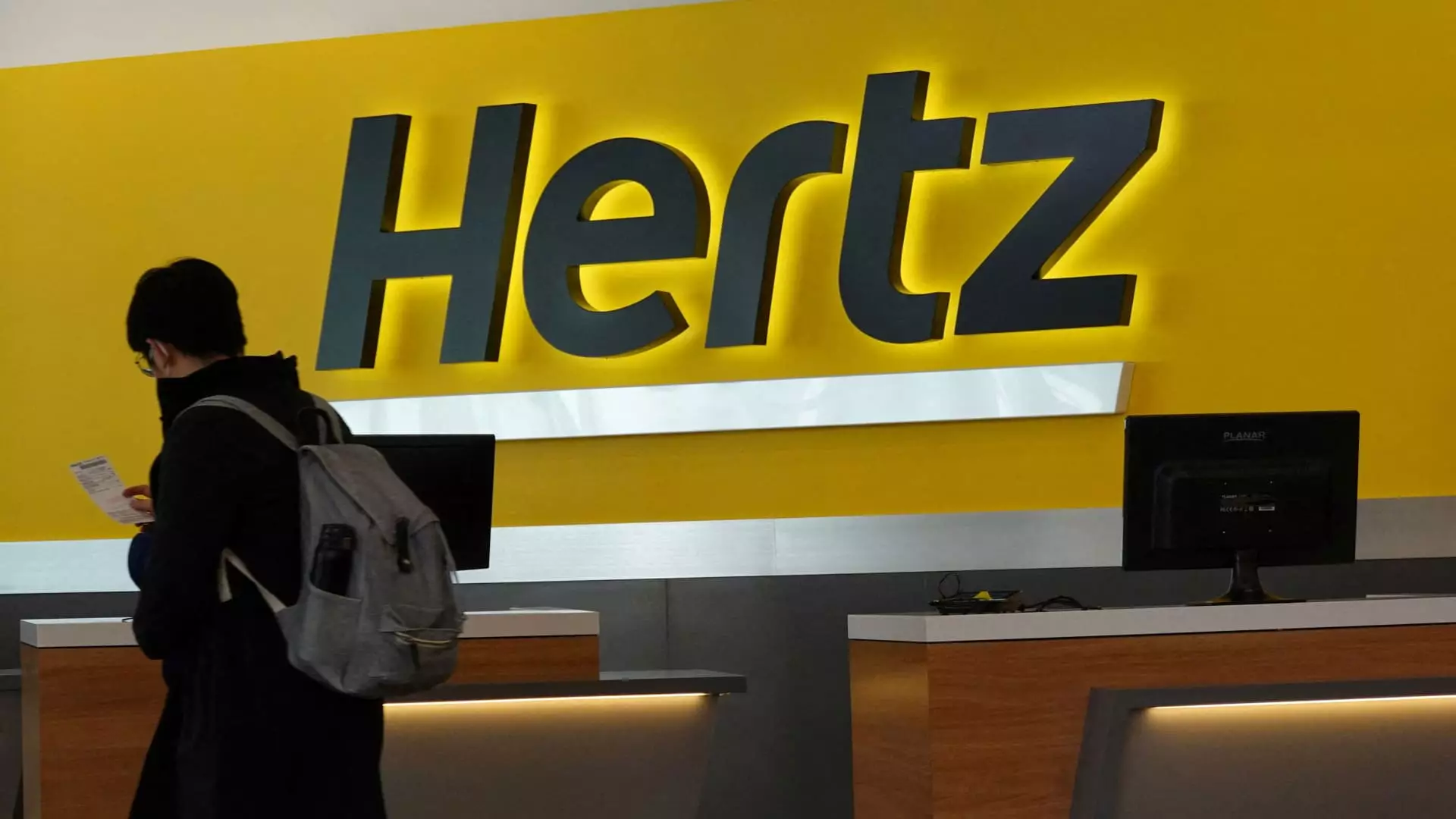Hertz Global’s recent financial performance has sent shockwaves through the market, showcasing the vulnerability of businesses that are expected to weather economic storms. On Tuesday morning, shares of the rental car company nosedived by over 20% during early trading, ultimately closing nearly 17% lower after disappointing first-quarter earnings were unveiled. Investors had anticipated something different—something far more encouraging. Instead, the company reported an adjusted loss of $1.12 per share, exceeding expectations of a mere 97-cent loss, alongside automotive revenue that fell short, registering $1.81 billion against an expectation of $2 billion. Such figures are not just disappointing; they highlight a significant chasm between what the market and investors expected versus what Hertz delivered.
A Bold Yet Risky Strategy: Stock Offering for Deleveraging
As if the poor earnings weren’t enough, Hertz also announced a $250 million stock offering during the earnings call. In an economic landscape rattled by uncertainty, this move raises questions about the company’s financial health and long-term strategy. CFO Scott Haralson described the offering as a necessary step towards deleveraging, but it beckons skepticism. Investors are understandably concerned: why dilate equity when the company is already in murky waters? The complexity of the current market necessitates a delicate balancing act—Hertz must juggle immediate debt maturities while attempting to assure investors of its growth potential. Such maneuvers could be perceived as a desperate attempt to stabilize a sinking ship, rather than a proactive strategy for sustained growth.
The Impact of Changing Consumer Sentiment and Competition
Hertz’s struggles cannot solely be attributed to its internal missteps; external factors play a considerable role. The combination of reduced consumer sentiment and declining tourism in the U.S. has created an inhospitable environment for rental companies. More troubling, the looming shadow of President Donald Trump’s auto tariffs has placed additional burdens on vehicle pricing, complicating Hertz’s already precarious situation. The company’s decision to reduce the number of rental cars available is startling—fewer options typically lead to fewer bookings. Yet, CEO Gil West insists this focus on “cost actions” and fleet management is essential for the company’s survival. However, the risk here is palpable: trimming rental availability in hopes of profitability could alienate customers eager for larger choices, all while competitors stand ready to capitalize on Hertz’s retreat.
A Roadmap to Recovery? Maybe Not
In its bid for a turnaround, Hertz has embarked on what it calls the “Back-to-Basics Roadmap.” They have outlined specific goals, such as reducing depreciation per unit below $300 and achieving positive earnings before interest, taxes, and depreciation by the third quarter of 2025. One wonders if these targets are overly optimistic, considering the rampant unpredictability of both domestic tourism and consumer confidence. While Hertz did report a noted improvement in operational expenses, analysts remain skeptical. Barclays analyst Dan Levy states unequivocally that although Hertz may be improving certain operational metrics, the overarching risk centers on demand, making the outlook “net negative.”
The Double-Edged Sword of Investor Sentiment
It is worth noting that Hertz’s stock had experienced a remarkable surge, increasing by 90% prior to this earnings debacle, largely due to the strategic investment made by Bill Ackman’s Pershing Square Capital Management. Yet, that surge now feels like a distant memory, overshadowed by the present crisis. Investor sentiment can shift dramatically, and a company that once appeared to be on a growth trajectory can find itself facing critical risk if it fails to maintain those expectations. Hertz’s recent plummet serves as a stark reminder that promises of growth must be matched by tangible performance; otherwise, investors will quickly reassess their commitments.
In a landscape fraught with uncertainty, Hertz stands at a crossroads. The choices it makes today will echo in the corridors of its future, determining whether it emerges from this turmoil stronger or succumbs to the mounting pressures of financial instability and market competition.


Leave a Reply